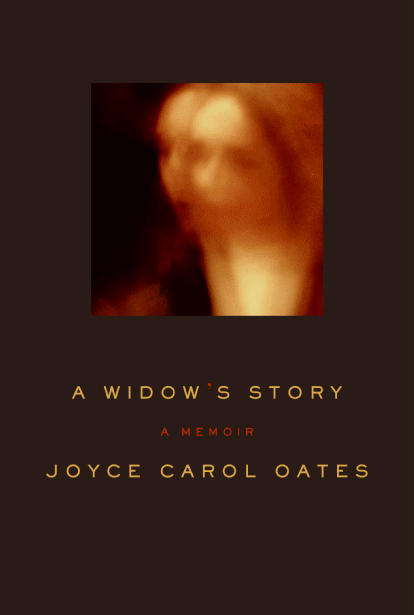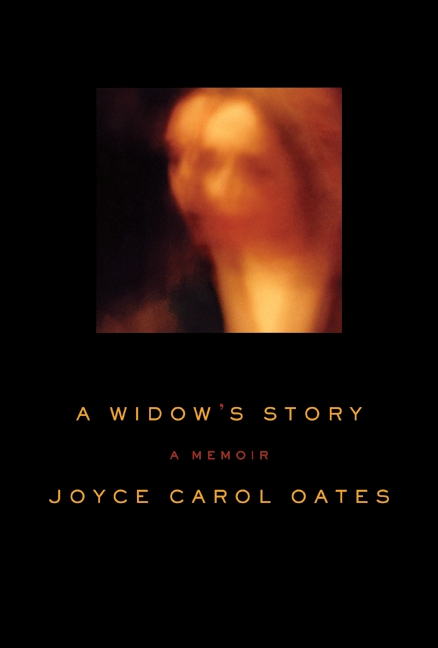 "We were in a car wreck," Joyce Carol Oates begins. "My husband died but I survived." And then, in the very next line, she pulls that beginning away: "This is not (factually) true. But in all other ways, it is true." Oates and her husband, Raymond Smith, were struck by a speeding car while driving through a Princeton intersection early in 2007; the front end of their vehicle was totaled, but they were fortunate to escape with heavy bruising and acid burns from the exploding air bags. ("Vaguely you might expect something cushiony, even balloon-like--no.") They are rattled by the experience, but settle back into their routine. Oates reflects, "It would have been a time to say Look—we might have been killed last night! I love you, I'm so grateful that I am married to you... but the words didn't quite come." Thirteen months later, Ray died in the hospital of a staph infection that struck while he was recuperating from pneumonia.
"We were in a car wreck," Joyce Carol Oates begins. "My husband died but I survived." And then, in the very next line, she pulls that beginning away: "This is not (factually) true. But in all other ways, it is true." Oates and her husband, Raymond Smith, were struck by a speeding car while driving through a Princeton intersection early in 2007; the front end of their vehicle was totaled, but they were fortunate to escape with heavy bruising and acid burns from the exploding air bags. ("Vaguely you might expect something cushiony, even balloon-like--no.") They are rattled by the experience, but settle back into their routine. Oates reflects, "It would have been a time to say Look—we might have been killed last night! I love you, I'm so grateful that I am married to you... but the words didn't quite come." Thirteen months later, Ray died in the hospital of a staph infection that struck while he was recuperating from pneumonia.
Oates awakens that February morning with an instinctive feeling that "something is wrong." She finds Ray sitting in another room, feeling warm and having difficulty breathing. He has already called their doctor, which raises more mental alarms for her, and she convinces him to let her take him to the emergency room. "He isn't taking anything with him to suggest that he expects even to stay overnight," she writes, when it turns out that he will never leave. Oates writes with chilling precision of the frantic passivity she experiences as the spouse of the afflicted: fainting after a call from the hospital, frustrated by the rudeness of the nurse's aide assigned to Ray's room, frightened by the delusions he suffers when his infected lungs are unable to send enough oxygen to his brain. Days pass in this manner, until "the call came at 12:38 a.m."--Ray is alive but in critical condition--she rushes to the hospital but arrives just minutes too late: "he'd gone into unexpected cardiac arrest--his blood pressure had plummeted, his heartbeat had accelerated--it was a secondary infection and not the original E. coli infection that had driven up his fever--his left lung was invaded, his bloodstream was invaded--though they tried very hard there was nothing more to be done."
If your first reaction to A Widow's Story is to imagine that we've covered this subject in The Year of Magical Thinking, Oates is well ahead of you. "Thank you for the Joan Didion memoir, which I'd already read--but will happily re-read," she e-mails one of her many consolers. "I know that there is much melancholy wisdom here." She knows that what has happened to her is hardly unique--so common are her experiences that she can speak of them detachedly as emblematic of what "the Widow" faces in the months after a husband's death. "This memoir is a pilgrimage," she realizes late in the telling. "To be human is to live with meaning. To live without meaning is to live sub-humanly." The widow's "posthumous life" may be stripped of its meaning, but (especially with the help of her friends) Oates finds a way to push through the grief and restore enough meaning to stay alive.
The power of this memoir, then, is not in the originality of Oates's experience but in the extent to which she opens her life up to readers. (Or, properly, the life of Joyce Smith--"the widow's identity"--for this is how anybody outside of literary circles knows her, as Ray Smith's wife, then his surviving spouse.) She exposes the desperation with which she finds herself saving his last voicemail message, playing it repeatedly just to hear his voice, just as she'll call her home phone from the office to hear him on the outgoing message she can't bring herself to change. She shares the unrelenting survivor's guilt: "Widowhood is the punishment for having been a wife," she says, and again: "This is what you deserve, who had been protected from such misery for too long." In her pain, she believes their two cats blame her for Ray's disappearance from their home; when one of the cats dies later that spring, she is devastated all over again, convinced that this, too, is her fault.
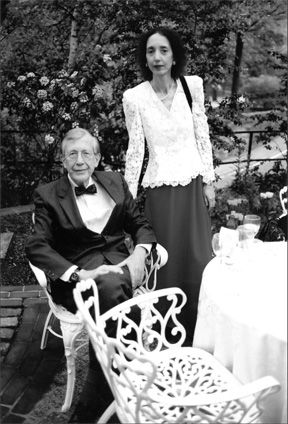 At times, Oates's eyes are so flooded with tears that she fears she may go blind, but her vision problems evolve to take a specific form, a "dark-shimmering thing" at first, then "a lizard-like creature," a basilisk that taunts her grief with thoughts of suicide: "You know you can end this at any time." Lorazepam can chase the basilisk away, or at least neutralize its power, but she knows the risks of taking too many pills: "I am afraid of becoming addicted to sleeping pills.... Though the rest of my life is in ruins, yet--I am determined not to be an addict." Even with that Lorazepam prescription in hand, though, she accepts a prescription for Ambien from Ray's former cardiologist--and, she admits, there is already "a considerable cache of pills, a lethal quantity of pills, at home," to which she will add these new medications. She will lay these pills, accumulated over the years, out on a counter repeatedly, noting exactly how many of each drug she has and reflecting that "a single decade of this rosary" would be enough to end her misery for good.
At times, Oates's eyes are so flooded with tears that she fears she may go blind, but her vision problems evolve to take a specific form, a "dark-shimmering thing" at first, then "a lizard-like creature," a basilisk that taunts her grief with thoughts of suicide: "You know you can end this at any time." Lorazepam can chase the basilisk away, or at least neutralize its power, but she knows the risks of taking too many pills: "I am afraid of becoming addicted to sleeping pills.... Though the rest of my life is in ruins, yet--I am determined not to be an addict." Even with that Lorazepam prescription in hand, though, she accepts a prescription for Ambien from Ray's former cardiologist--and, she admits, there is already "a considerable cache of pills, a lethal quantity of pills, at home," to which she will add these new medications. She will lay these pills, accumulated over the years, out on a counter repeatedly, noting exactly how many of each drug she has and reflecting that "a single decade of this rosary" would be enough to end her misery for good.
"Suicide is in fact a consoling thought," she confesses. "Suicide is the secret door by which you can exit the world at any time--it's wholly up to you." She takes a cold comfort in Marcus Aurelius's observation that "the power to take your own life is yours at all times." Yet suicide is also a choice that cannot be revoked, and for Oates it is enough to think about what effect her death would have on others. By breaking her days into segments, and living one day at a time, she is able to beat back the feeling that "this world has become remote & inaccessible." A prescription for Cymbalta helps, although this, too, does not ward off the basilisk completely. But she must try. "Where there is blood in the water," she reflects, "yet there may be a thrashing desperate-to-survive creature. I will be that creature. I will not give up."
When Oates does not dwell on her own potential obliteration, grief causes her to question everything that has come before. Having been taken away so abruptly, could her love have been real? "What is frightening is, maybe I never knew him," she worries. "In some essential way, I never knew my husband." They did not share their problems with each other ("unless it was unavoidable," she notes), and thus, rather than turn to him for comfort from bad reviews or other publishing difficulties, she "I walled off from my husband the part of my life that is 'Joyce Carol Oates'--which is to say, my writing career." (He didn't even read her novels and short stories, although he did manage the money they generated.) Likewise, she believes, "Ray would never wish to upset me. Very likely Ray shielded from me all sorts of things I never knew, and will never know." This includes his life before they were married; certain aspects of his family history , she comes to realize, represent "a kind of taboo territory about which I could not make inquiries." She finds the manuscript of Ray's unfinished novel in a closet, then agonizes over whether she should read it: "What you don't know about your husband has been hidden from you for a purpose," an internal voice warns, strong enough to deter her for some time. (Eventually, she does read, and discovers that she was right: the manuscript--which she never realized he continued to work on long after they were married--does hint at deeply suppressed traumas in Ray's early life.)
"But then," she admits, "I have walled myself off from 'Joyce Carol Oates' as well." She speaks of this "quasi-public self" as an "author-identification" she must from time to time impersonate and which can now offer some respite from the pain of Joyce Smith's life, especially in her creative writing classes at Princeton. "It isn't an exaggeration to say that, this semester of Ray's death, my students will be my lifeline," she says. She hopes, in fact, that the students will have no idea that anything has happened to her outside the classroom (but of course they know).
So while she can play the role of "JCO" at readings and other public appearances (which she undertakes in a further effort to evade the basilisk), Oates discovers that "to be a writer, you have to be strong enough to write," and in the months immediately following Ray's death, despite the number of inspirations for stories and novels that pass through her mind, "I haven't even the energy to write down these ideas, let alone plot out ways to execute them." This plays into all the other anxieties she has about her writing life, bravely exposed to readers' view--the feeling that nobody could possibly take her seriously, the reluctance (apart from the sheer lack of time) to blurb other writers because if her name on her own dust jackets isn't enough to sell her books, how could it possibly help somebody else's? She is amazed that anybody thinks she could be, as a colleague puts it flippantly, "writing up a storm" in the months after Ray's death, when it's all she can do some mornings to pull herself out of bed. ("Completing a novel!" she snorts. "I haven't even been able to complete a thank-you note!")
It may shock us, though perhaps it shouldn't, that Joyce Smith struggles to live up to the reputation of Joyce Carol Oates, whose name has become synonymous with that rare combination of prolificness and critical acclaim--and, by this account, that she did so long before Ray's death upended the life he had carefully maintained for her. Obviously, Oates has found a way to continue writing (and, though she mentions it only briefly, there is a novel that she has set out to completely revise "to save myself, as a drowning person might seize a rope, a lifeline, to haul herself up"). Maybe it is awkward to say that we should be grateful for this--let's say, then, that we should appreciate not only how Oates has pulled herself back from the brink of despair but also how she has been able to articulate a despair that all of us are in time likely to feel, to reassure us that this raw pain is both normal and survivable.--Ron Hogan
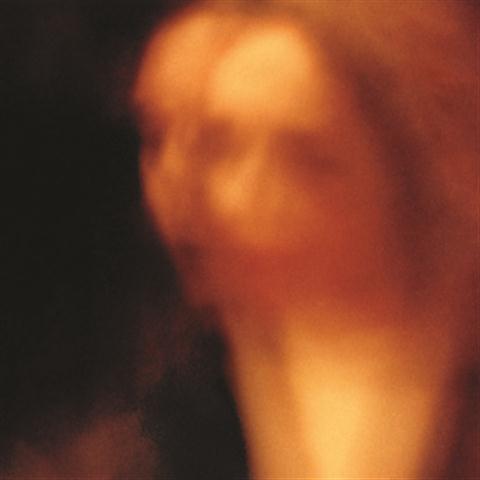 In this
edition of Maximum Shelf--the monthly Shelf Awareness feature that
focuses on an upcoming title that we love and believe will be a great
handselling opportunity for booksellers everywhere--we present A Widow's Story: A Memoir by Joyce Carol Oates, which goes on sale on today, February 15. Ecco has helped support this issue.
In this
edition of Maximum Shelf--the monthly Shelf Awareness feature that
focuses on an upcoming title that we love and believe will be a great
handselling opportunity for booksellers everywhere--we present A Widow's Story: A Memoir by Joyce Carol Oates, which goes on sale on today, February 15. Ecco has helped support this issue.

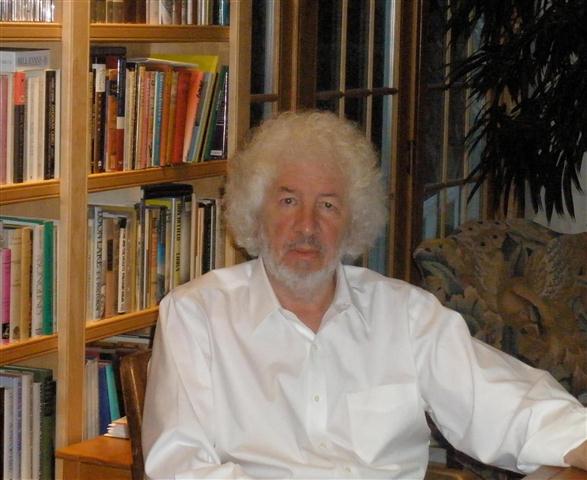 "People have a notion of what a Joyce Carol
Oates book is like," Ecco editorial director Daniel Halpern said during a
telephone conversation from his office in the HarperCollins building.
"Sometimes they're right, and sometimes they're not right." He should
know: he's edited several of her books over the last decade, from 2000's Blonde to her
new memoir, A Widow's Story, an
intimate self-portrait which he expects will surprise even readers who have
followed her work closely: "They've seen facets of her, little pieces of
personal information that slip in by way of her characters, but this is, from
beginning to end, Joyce at her most vulnerable."
"People have a notion of what a Joyce Carol
Oates book is like," Ecco editorial director Daniel Halpern said during a
telephone conversation from his office in the HarperCollins building.
"Sometimes they're right, and sometimes they're not right." He should
know: he's edited several of her books over the last decade, from 2000's Blonde to her
new memoir, A Widow's Story, an
intimate self-portrait which he expects will surprise even readers who have
followed her work closely: "They've seen facets of her, little pieces of
personal information that slip in by way of her characters, but this is, from
beginning to end, Joyce at her most vulnerable."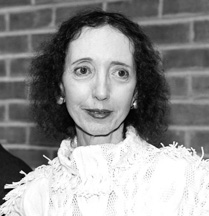 Joyce Carol Oates is the
recipient of the PEN/Malamud Award for Excellence in Short Fiction and the
winner of the National Book Award. Among her major works are We Were the Mulvaneys, Blonde and The Falls.
Joyce Carol Oates is the
recipient of the PEN/Malamud Award for Excellence in Short Fiction and the
winner of the National Book Award. Among her major works are We Were the Mulvaneys, Blonde and The Falls.  "We were in a car wreck," Joyce Carol Oates begins. "My husband died but I survived." And then, in the very next line, she pulls that beginning away: "This is not (factually) true. But in all other ways, it is true." Oates and her husband, Raymond Smith, were struck by a speeding car while driving through a Princeton intersection early in 2007; the front end of their vehicle was totaled, but they were fortunate to escape with heavy bruising and acid burns from the exploding air bags. ("Vaguely you might expect something cushiony, even balloon-like--no.") They are rattled by the experience, but settle back into their routine. Oates reflects, "It would have been a time to say Look—we might have been killed last night! I love you, I'm so grateful that I am married to you... but the words didn't quite come." Thirteen months later, Ray died in the hospital of a staph infection that struck while he was recuperating from pneumonia.
"We were in a car wreck," Joyce Carol Oates begins. "My husband died but I survived." And then, in the very next line, she pulls that beginning away: "This is not (factually) true. But in all other ways, it is true." Oates and her husband, Raymond Smith, were struck by a speeding car while driving through a Princeton intersection early in 2007; the front end of their vehicle was totaled, but they were fortunate to escape with heavy bruising and acid burns from the exploding air bags. ("Vaguely you might expect something cushiony, even balloon-like--no.") They are rattled by the experience, but settle back into their routine. Oates reflects, "It would have been a time to say Look—we might have been killed last night! I love you, I'm so grateful that I am married to you... but the words didn't quite come." Thirteen months later, Ray died in the hospital of a staph infection that struck while he was recuperating from pneumonia. At times, Oates's eyes are so flooded with tears that she fears she may go blind, but her vision problems evolve to take a specific form, a "dark-shimmering thing" at first, then "a lizard-like creature," a basilisk that taunts her grief with thoughts of suicide: "You know you can end this at any time." Lorazepam can chase the basilisk away, or at least neutralize its power, but she knows the risks of taking too many pills: "I am afraid of becoming addicted to sleeping pills.... Though the rest of my life is in ruins, yet--I am determined not to be an addict." Even with that Lorazepam prescription in hand, though, she accepts a prescription for Ambien from Ray's former cardiologist--and, she admits, there is already "a considerable cache of pills, a lethal quantity of pills, at home," to which she will add these new medications. She will lay these pills, accumulated over the years, out on a counter repeatedly, noting exactly how many of each drug she has and reflecting that "a single decade of this rosary" would be enough to end her misery for good.
At times, Oates's eyes are so flooded with tears that she fears she may go blind, but her vision problems evolve to take a specific form, a "dark-shimmering thing" at first, then "a lizard-like creature," a basilisk that taunts her grief with thoughts of suicide: "You know you can end this at any time." Lorazepam can chase the basilisk away, or at least neutralize its power, but she knows the risks of taking too many pills: "I am afraid of becoming addicted to sleeping pills.... Though the rest of my life is in ruins, yet--I am determined not to be an addict." Even with that Lorazepam prescription in hand, though, she accepts a prescription for Ambien from Ray's former cardiologist--and, she admits, there is already "a considerable cache of pills, a lethal quantity of pills, at home," to which she will add these new medications. She will lay these pills, accumulated over the years, out on a counter repeatedly, noting exactly how many of each drug she has and reflecting that "a single decade of this rosary" would be enough to end her misery for good. 